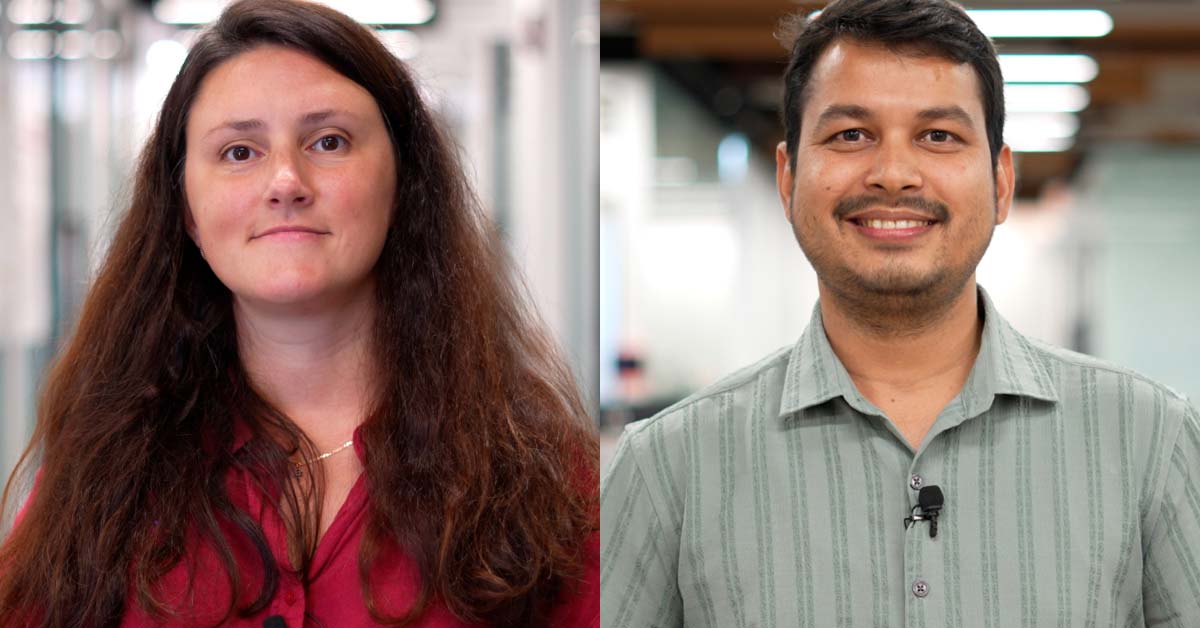A team from Mohamed bin Zayed University of Artificial Intelligence (MBZUAI), Abu Dhabi has received the Google Academic Research award. The tech giant presented the award to MBZUAI’s Dr. Ekaterina Kochmar, assistant professor of natural language processing (NLP), and researcher Dr. Kaushal Kumar Maurya, a postdoctoral researcher specializing in NLP and large language models (LLMs) for education.
The Google Academic Research Awards provide funding and collaboration opportunities to researchers to foster an ecosystem of impactful research and real-world use cases.
Following the achievement, the University will expand its research on educational foundation models and dialogue-based intelligent tutoring systems after being awarded a Google Academic Research Award.
Kochmar and Maurya were the only team from the Middle East honored in the inaugural Google Academic Research Awards and were recognized in the category “making education equitable, accessible and effective using AI”.
Their research project, titled “2σ-ITS: A Pedagogical Intelligent Tutoring System Grounded in Learning Science Principles”, focuses on developing educational foundation models and building a new generation of dialogue-based intelligent tutoring systems that are powered by generative AI to assist students across a range of subjects, including STEM and language learning.
Speaking of the development, Kochmar said,
“It is a true honor to receive this award, and we are grateful to Google Academic Research Awards for supporting our work in this field,”
“Our project’s aim is to ensure that students around the world can use NLP-driven technology to access education and help tutors reach students, who may be unable to access mainstream education services. We are excited to develop advanced AI solutions with the potential to improve people’s lives, and we appreciate this recognition from Google to support our endeavors.” she added
“Modern technologies like state-of-the-art AI models and LLMs already exhibit impressive capabilities, so it’s time to look into how they can be used for impactful applications. I would like to see this being used in real life, to the benefit of the educational system at large, but specifically the teachers and students: helping them learn better, faster, more efficiently and more effectively,” she continued
By giving an example of a busy classroom, Kochmar and Maurya stressed that their system aims to help teachers and not to replace them.
“If you don’t have time to address everybody in the class, you can provide students with a personalized tablet that adapts to their needs. It knows what they know and don’t know and explains the learning in a way that is specific to them,” Kochmar explained
“In this scenario, the final goal for all students to gain the same expertise, but the way each person gets there may be different. That’s where the system would help.” she added
“Much like calculators and computers in the past, we see such tutoring systems becoming an embedded part of the educational system – not replacing human teachers, but assisting them,” said Maurya.
The Google Academic Research Awards 2024 awards covered six categories: creating ML benchmarks for climate problems; making education equitable, accessible and effective using AI; quantum transduction and networking for scalable computing applications; using Gemini and Google’s open model family to solve systems and infrastructure problems; society-centered AI; and trust & safety.





